Mobile Planetarium
- Audience: Elementary age and up. Ask for information about grade-appropriate shows.
- Group size: Up to 25 kids or up to 20 adults per show. *Mobius may request that a chaperone be present during the presentation.
- Length: Varies, depending on shows and needs. We will arrive at least 30 minutes before showtime to set up.
- Fee: $275 for two planetarium shows. Any additional shows booked on the same day and same location are $100 each. Travel fees may apply.
- Space Requirements: 25’ x 25’ of floor space, 15’ of vertical clearance, and access to an electrical outlet is required. Indoor use only.
- Accessibility: Viewers will sit on the floor for the duration of the show. For accessibility accommodations, please include in inquiry form. The planetarium is not recommended for those with claustrophobia.
- Schedule: The planetarium must be scheduled in advance and is booked on a space-available basis.
- Topics: See the list of available shows below.
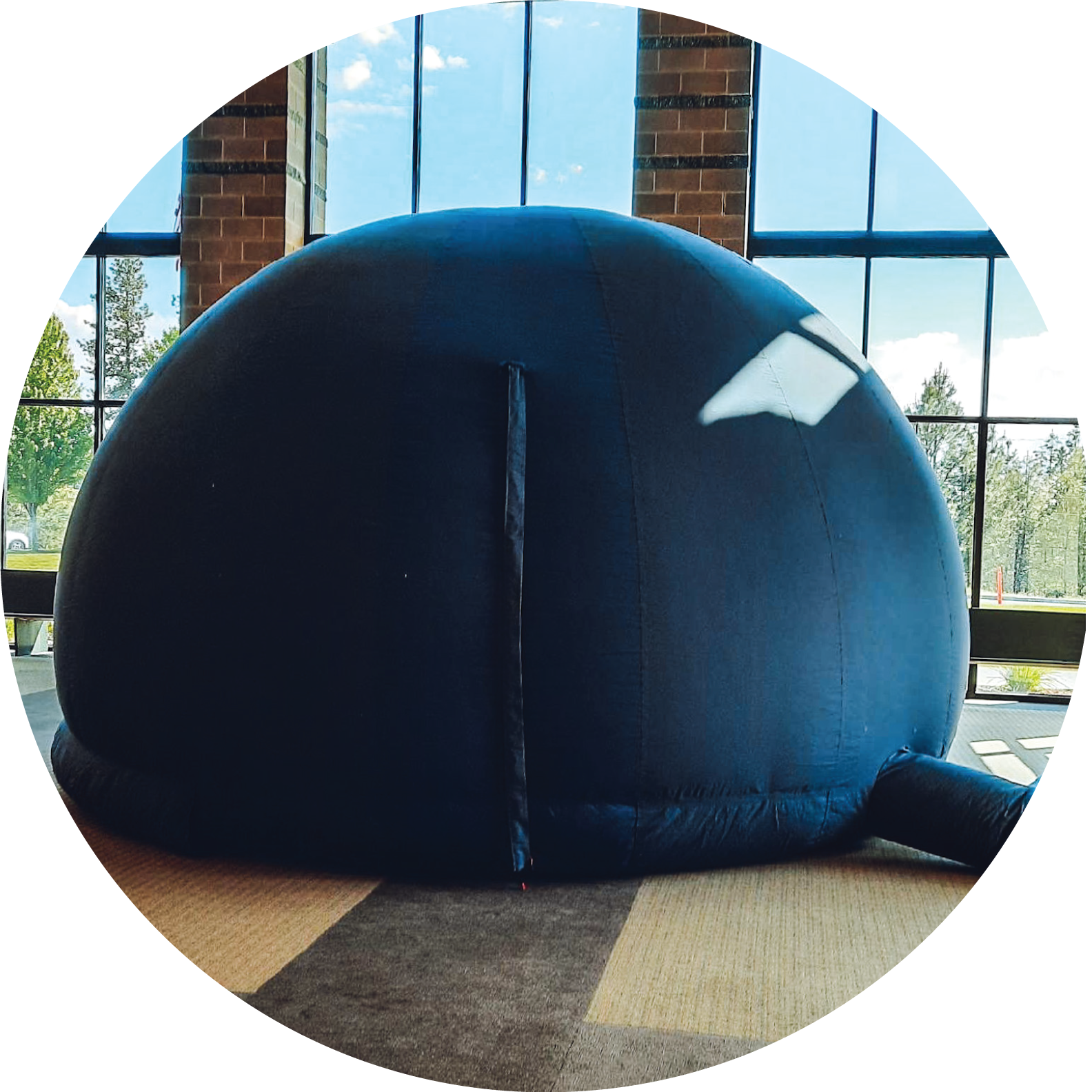
An immersive, 360° experience will inspire a better understanding of the world around us. Our planetarium is ready to enhance your Earth + Space learning and will bring plenty of “oohs” and “ahs.”
Scheduling + Inquiries
Submit this form to inquire. An educator will respond as soon as possible. Please include any questions in your message.
Now Showing
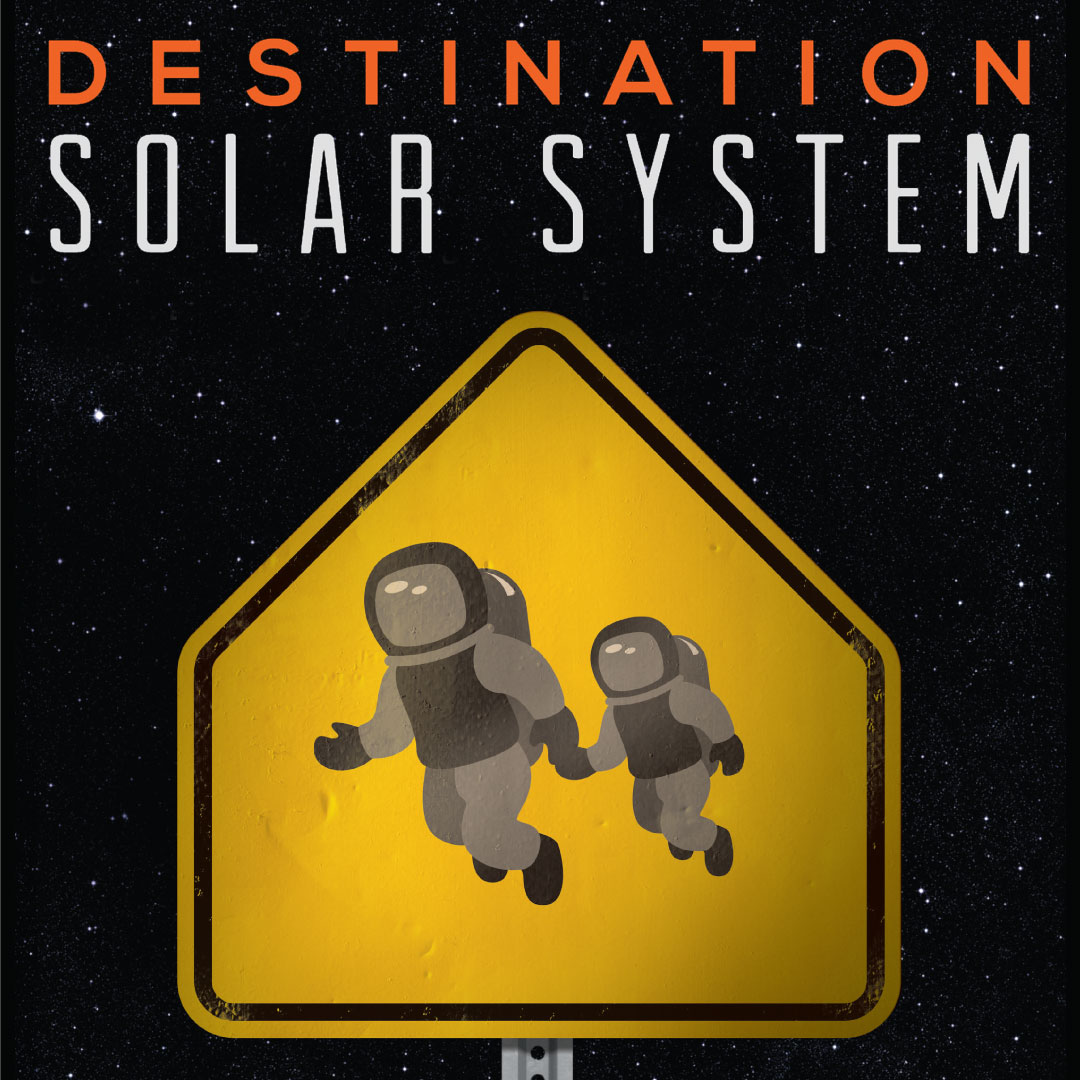
NEW!!! Destination Solar System
Topic: Space | Length: 30 minutes
Tours of the hottest hot spots and the coldest, stormiest and most spectacular sights in the Solar System await curious space explorers of all ages, in Destination Solar System!
This out-of-this world jaunt takes place on board the fastest ship, equipped with Space Jump technology.

Expedition Reef
Topic: Biology | Length: 26 minutes
Dive into the heart of the Academy’s iconic Philippine coral reef tank as thousands of tropical fish flutter by. Travel the globe to explore coral reefs teeming with life and learn how scientists are racing to develop sustainable solutions to protect these vitally important ecosystems for the future. Along the way, discover how corals live, breathe, and reproduce, supporting a quarter of all marine life on Earth and providing critical benefits to human communities in our ever-changing world.
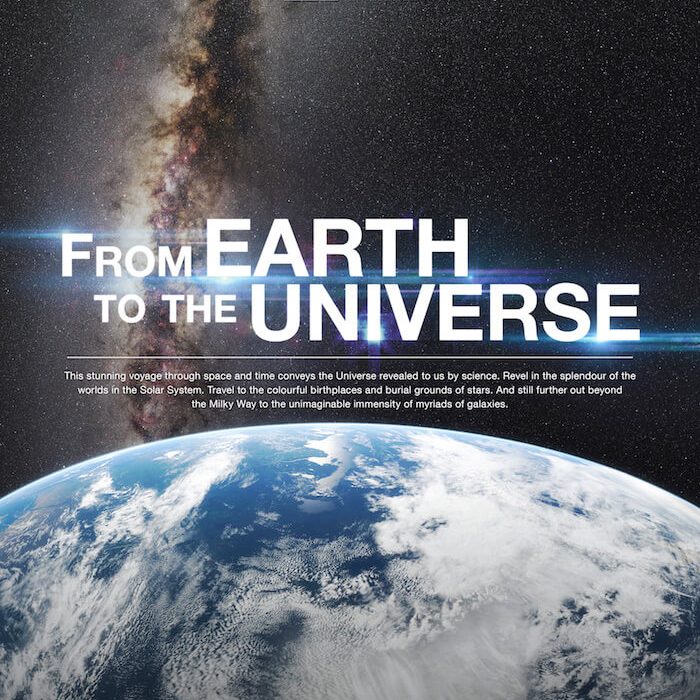
From Earth to the Universe
Topic: Space | Length: 20 – 30 minutes
A desire to comprehend the Universe may well be humanity’s oldest shared intellectual experience. Viewers can revel in the splendor of the worlds in the Solar System and our scorching Sun. Explore colorful birthplaces and burial grounds of stars, and still further out beyond the Milky Way to the unimaginable immensity of a myriad galaxies.
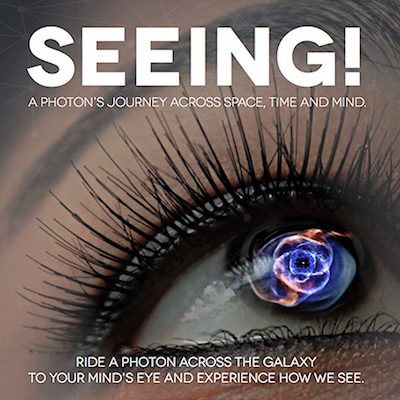
Seeing!
Topic: Biology | Length: 27 minutes | Age: High School
SEEING!, narrated by Neil deGrasse Tyson, tells the tale of a photon’s journey from the core of a star and its journey across the galaxy to a young woman’s eye. It explains the conversion of energy into an electro-chemical impulse which travels the neuro pathways to the various vision centers of the brain to create the images that she sees.
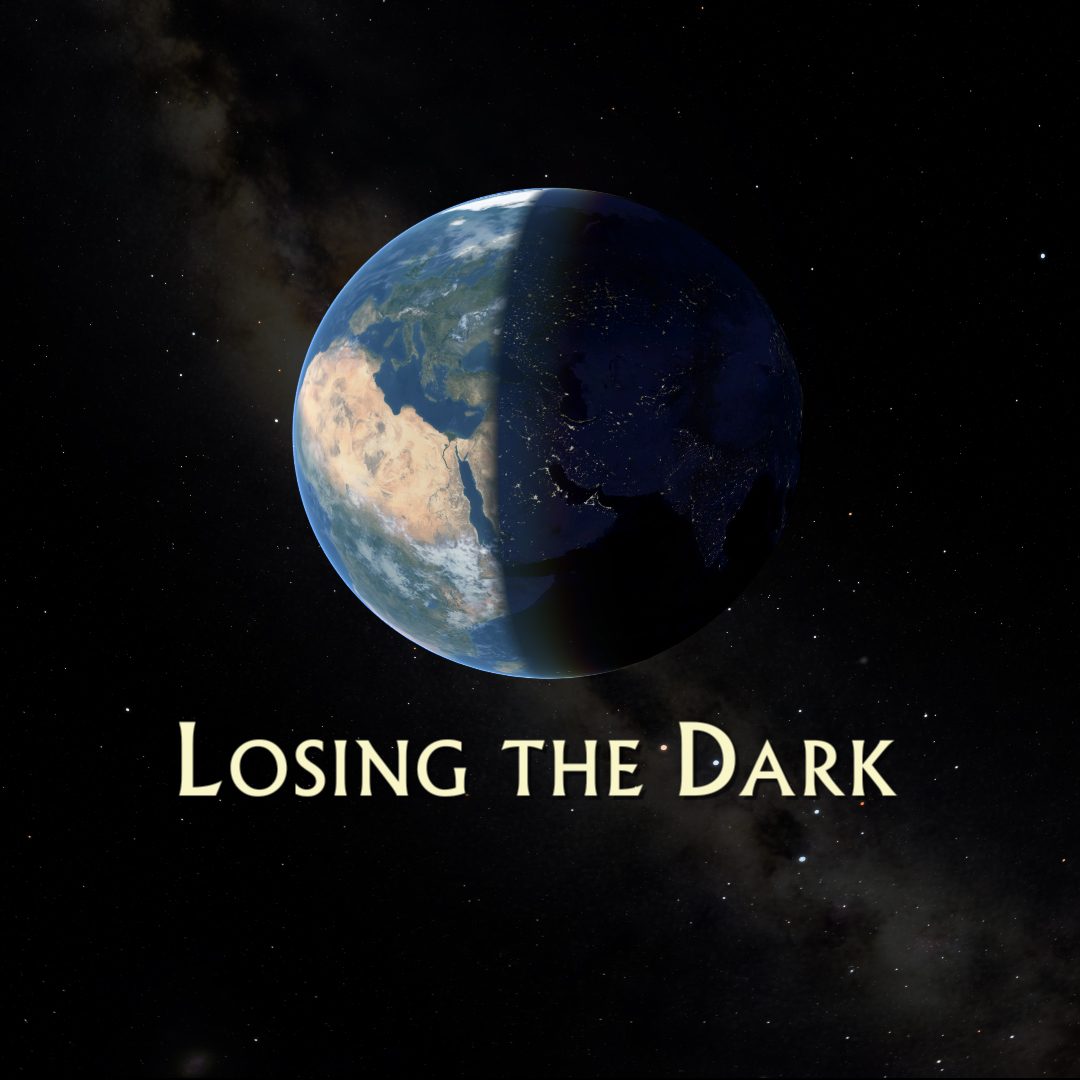
Losing the Dark
Topic: Space | Length: 7 minutes (3 showings of this mini feature count as 1 show.)
Starry skies are a vanishing treasure because light pollution is washing away our view of the cosmos. It not only threatens astronomy, it disrupts wildlife, and affects human health. The yellow glows over cities and towns — seen so clearly from space — are testament to the billions spent in wasted energy from lighting up the sky.
This section is saved as a template for the pop up modal
Scheduling + Inquiries
Submit this form to inquire. An educator will respond as soon as possible. Please include any questions in your message.